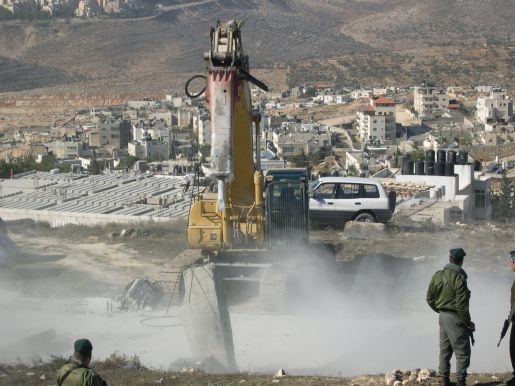
Tensioins have flared in Sheikh Jarrah, a Palestinian area located to the north of the Old City in occupied East Jerusalem. Over the last three years, more than 60 Palestinians have been forcibly evicted in this area and at least another 500 are at risk of dispossession and displacement, according to the United Nations Office for the Coordination of Humanitarian Affairs (UN OCHA).
The Sheikh Jarrah eviction cases are primarily based upon two competing land ownership claims, namely those of: (1) Jewish Committees ("the Committees") who claim ownership pre-dating 1948; and (2) 28 extended Palestinian refugee families (over 500 people) who have been residing on the land for over 50 years. The 28 Palestinian families, all of which fled or were forcibly expelled from their homes in 1948 from areas that are now in Israel were resettled in the area of Sheikh Jarrah by the United Nations in 1956. Under a housing scheme sponsored by the United Nations Relief and Works Agency for Palestine Refugees in the Near East (UNRWA), the 28 Palestinian refugee families were granted funds to build homes on land provided by the Jordanian government, provided they relinquished their right to food assistance from UNRWA. According to individual lease agreements between the respective families and the Jordanian authorities, the families were to pay a nominal rent for three years, after which ownership of the land and the properties would be transferred to them. However, despite assurancesto the contrary, legal titile to the homes was never formally transferred to the families.
Since the start of the Israeil occupation and annexation of East Jerusalem in 1967, which continues until today, the Palestinian refugee families in Sheikh Jarrah have been the target of eviction proceedings brought by the Committees and their successor, the Nahalat Shimon Company (to whom all rights and obligations were transferred in 2008-2009), before Israeli courts, resulting in the eviction of 4 refugee families to date (60 people) - the Mohammad Al-Kurd, Al-Ghawi, Hanoun and Rifqa Al-Kurd families - all of whom had already been forcibly displaced at least once before.
